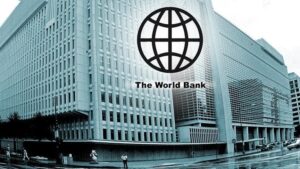
Accrued insurance premiums under Green Card international insurance policies signed by member companies of the Motor (Transport) Insurance Bureau of Ukraine (MTIBU) grew by 45.4% in January-February 2022 compared to the same period in 2020, to UAH 422.7 million.
As reported on the MTIBU website, the number of Green Card policies concluded over this period rose by 90.2%, to 186,300.
At the same time, the amount of compensation paid on claims decreased 0.72%, to EUR 1.836 million, while the number of paid claims fell by 0.24%, to 823.
MTIBU is the only association of insurers that provides compulsory insurance of civil liability of owners of ground vehicles for damage caused to third parties.
Green Card is a system of insurance coverage for victims of a road traffic accident, regardless of their country of residence and the country of registration of the vehicle. The Green Card covers the territory of 47 countries in Europe, Asia and Africa.
According to the decision adopted by the General Assembly of the Council of the Bureaux of the Green Card international auto insurance system in Luxembourg in May 2004, Ukraine since January 1, 2005 has been a full member of this system.

The Ministry of Digital Transformation of Ukraine has already received more than 66,000 applications for damaged property of Ukrainians through the Diia application after February 24, Deputy Prime Minister of Digital Transformation Mykhailo Fedorov said on his Telegram channel on Monday.
To apply to the Diia it is necessary to: update the application to the latest version, select “Damaged property” in the “Services” section and fill out the form, specifying all the necessary information.
“It is important: one need to enter data only on your own housing. One person cannot apply for the whole house, but only for his apartment. After registering the message, expect information about the beginning of the assessment procedure and compensation determined by the government,” Fedorov said.
Earlier, adviser to head of the President’s Office Oleksiy Arestovych reported that the Cabinet of Ministers of Ukraine would compensate for the cost of the destroyed housing stock with an area of up to 150 sq. m.

The international development company Caspian Service has resumed its activities in Ukraine.
As the press service of the company reported, the activities of the Azerbaijani developer have been suspended since the beginning of the Russian invasion on February 24, 2022.
Already in early April, the Caspian Service team resumed work on the design of the second stage of construction of the BASA City residential complex and is actively studying the possibility of building the first and second stages of this complex in the suburbs of the capital.
Currently, the construction site of the project is under guard, the CEO and management of the company continue to stay and work in Kyiv, and the team members temporarily evacuated plan to return to their workplaces in the coming weeks.
The release notes that since the outbreak of hostilities, the company has suspended claims for regular installment payments for a period of three months.
Founded in 2001, the construction company Caspian Service is one of the leaders in the construction industry in Azerbaijan. Over the years of work, more than 1 million square meters have been built and put into operation in Azerbaijan. real estate (housing, offices, shopping centers, sports complexes, medical clinics, etc.). Develops projects in Ukraine, Kazakhstan, Georgia and other countries.

Ukraine’s GDP in 2022 will fall by 45.1%, the World Bank predicts, recalling that before the Russian invasion, it expected the Ukrainian economy to grow by 3.2% this year.
According to its Europe and Central Asia Economic Update amid the war unleashed by Russia and its consequences, in 2023 the Ukrainian economy is expected to recover by only 2.1%, which is also worse than previous expectations of 3.5%.
“Russia’s invasion of Ukraine has triggered a catastrophic humanitarian toll and severe economic contraction… The impact on poverty is also likely to be devastating, although it is hard to quantify at this stage. Based on the international poverty line of $5.50 per day, poverty is projected to increase to 19.8% in 2022, up from 1.8% in 2021, with an additional 59% of people being vulnerable to falling into poverty,” the World Bank said in the report.
According to the document, simulations using the most recent macroeconomic projection show that the share of the population with incomes below the actual subsistence minimum (the national poverty line) may reach 70% in 2022, up from 18% in 2021. In the absence of a massive post-war support package, this indicator would still be higher than 60% by 2025, the bank added.
According to the World Bank’s forecasts, private consumption in Ukraine this year will fall by 50%, while public consumption by 10%, and capital investment will drop by 57.5%. Exports of goods and services will be reduced by 80%, imports – by 70%, while the public debt to GDP ratio will increase from 50.7% to 90.7%. The forecast for the consumer price index is 15% with an increase to 19% next year.
World Bank experts expect this year a current account deficit of the balance of payments of 6.8% of GDP and its expansion to 16.8% in 2023, a fiscal deficit (non-military) – 17.5% and 26.5%, respectively.
Even for 2024, the World Bank predicts an acceleration of economic growth to only 5.8% with inflation of 8.4%
“In coming years, a major reconstruction effort is expected to push growth to over 7% by 2025 amid a slow restoration of productive and export capacity and gradual return of refugees. Still, by 2025, GDP will be a third less than its pre-war level in 2021,” the World Bank said.
The World Bank explains the absence of a strong rebound in economic growth in 2022-2023 by saying that the war has destroyed a critical amount of productive infrastructure—including rail, bridges, ports, and roads—rendering economic activity impossible in large swathes of areas. Goods trade has come to a grinding halt, as damaged transit routes prevent goods by land while the loss of access to the Black Sea cuts off half of Ukraine’s exports and 90% of its grain trade. The planting and harvest seasons have been disrupted, the World Bank said.
“The magnitude of the contraction, however, is subject to a high degree of uncertainty related to the duration and intensity of the war. Still, the repercussions are anticipated to reverberate beyond the short-term collapse in domestic demand and exports, as output is scarred by the destruction of productive capacity, damage to arable land, and smaller labor supply – especially if refugees are slow to return or choose to remain permanently outside Ukraine,” the World Bank said.
Learning losses from the pandemic are expected to be amplified by the war given the destruction of schools and disruption to schooling. The Bank, referring to UNICEF data, said that the war had displaced 4.5 million children – more than half of Ukraine’s estimated 7.5 million child population – likely disrupting education, setting back development goals, and eroding long-term potential growth prospects.
“With physical capital and vital assets destroyed and degraded, combined with scarring from the war and pandemic, the recovery will be more difficult without significant reconstruction efforts and capital flows,” the World Bank said.

In January 2022, member insurance companies of the Motor (Transport) Insurance Bureau of Ukraine (MTIBU) concluded 590.5 thousand contracts of compulsory civil liability insurance of land vehicle owners (OSAGO), which is 1.04% more than in January 2021.
According to the data published on the MTIBU website, out of the total volume of contracts, 273.3 thousand were concluded in electronic form, which is 5.05% more than in the first month of 2021.
Members of the Bureau increased the collection of insurance payments under OSAGO policies by 16.68% compared to the same period last year – up to UAH 522.7 million, including for electronic contracts – in the amount of UAH 271.2 million, which is 23.16% more, than a year earlier
The total amount of accrued insurance claims under internal insurance contracts for January 2022 increased by 9.72% to UAH 287.2 million. Including UAH 57.4 million was paid using the Europrotocol, which is 19.3% more than a year earlier.
The Bureau also recorded an increase in the number of settled claims for insurance compensation by 4.93% – up to 13.461 thousand, including 5.221 thousand (+14.2%) using the “Europrotocol”.
MTIBU is the only association of insurers that provides compulsory insurance of civil liability of owners of ground vehicles for damage caused to third parties. Bureau members are 49 insurance companies.

New Zealand will send a C-130 Hercules transport plane with 50 servicemen to Europe to participate in the distribution of military aid to Ukraine, Prime Minister Jacinda Ardern announced.
Over the next two months, our C-130 will join a chain of military aircraft from partner countries that will travel across Europe delivering much-needed equipment and supplies to key distribution centers, Ardern was quoted as saying by local media.
New Zealand will also allocate an additional NZ$ 13 million to help Ukraine, including 7.5 million for the purchase of weapons and ammunition through the UK. At the moment, the total contribution of New Zealand is $30 million.